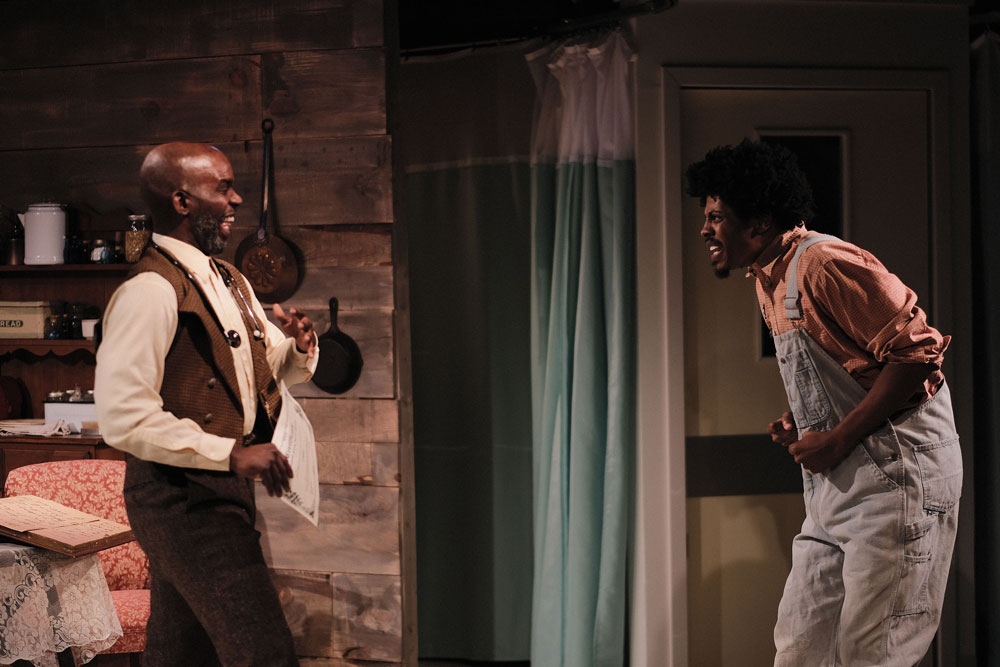
The emergence of a global pandemic in 2020 was the last time Black Americans thought collectively about government conspiracy. Skepticism about true intent kept thousands from taking advantage of vaccines developed to protect against the Covid 19 virus and its variants. Although it transpired in the 1930s, memories of how the government deceived and victimized Black men at Alabama’s Tuskegee Institute remained fresh. During that period, the U.S. Public Health Service worked with the historically Black college to conduct a study on untreated syphilis. The study involved 600 participants who were not provided informed consent. Told that they were being treated for “bad blood”, the men were offered free meals, free medical exams and burial insurance for taking part in the study. A class action suit filed in the 70s resulted in a $10 million settlement to survivors and their families.
The impact of that deceit and the way it manifests itself in the 21st century lies at the heart of Lisa Langford’s thoroughly transfixing tale, How Blood Go. Presented by Congo Square Theatre and in performance at Steppenwolf, Langford’s take on the realities of race in America, past and present, blazes with courage, uncanny poetic brilliance and honesty. It’s all wrapped up in an ambitious young Black woman who wants to turn her passion for health and exercise into a wellness and lifestyle business called Quinntessentials.
Early on though, something seems amiss. Why is a white woman blithely spewing distasteful racists tropes while she going through her exercise routines and admiring herself in a mirror? We also wonder how can there be a connection between her and the two Black women we meet next. Deep in girl talk with her best friend, Quinntasia (Jyreika Guest), Didi (Yolonda Ross) runs through a hilarious lament about how difficult it is to find a sexually functional man.

It’s hard to describe what kind of world Langford has created in How Blood Go. Is it a form of futurism, science fiction or does it dwell in the realm of alternate reality? Whatever its origins, Quinntasia and the white woman (Kayla Kennedy) we saw exercising earlier are the same person. A patch on Quinntasia’s neck controls how others see her and, by extension, how people treat her. By overlaying a parallel world onto this surreal one, Langford shows how little has changed in the visibility or treatment of Black people in this country.
Ace (Ronald L. Carter) and Bean (David Dowd) occupy one side of the stage set in 1930s Alabama. Full of life, they use a combination of humor, hope and in Ace’s case, intellectual study; to forge their paths in a dangerously precarious world. Believing he’s finally valued as well as seen, Bean continually brags about the free services he receives because doctors want to study his “bad blood”. Free trips to examinations, free medicine that turns out to be nothing more than placebos and free burial insurance. The last point is extremely precious to him as he remembers how many of his deceased friends and relatives lie outside burial grounds in unmarked graves.
Quinntasia’s present day concerns played out on the opposite side of the stage. Deteriorating after a persistent cough landed her in the hospital, Didi’s absence of compassionate or competent care mirrors Bean’s disingenuous medical treatment in his universe. Grappling with her friend’s illness and coming to grips with the moral price her racial duality is exacting from her, Quinntasia’s forced into making a series of life defining decisions. In How Blood Go, each one of them becomes a story within a story that highlight the human consequences of systemic racial devaluation.

All about the money and an inveterate profiteer, her boyfriend, Tron (Marcus D. Moore), pushes her to capitalize on her ability to race change. Just as exploitative as Quinntasia’s white benefactress, he goes so far to propose they create sex tapes as one way to monetize her novelty. There’s even a suggestion that he prefers her white, bringing to light another controversial consideration for the audience to unpack and examine. His reactions to her show how deeply race influences how we respond to one another; even when our relationships are intimately close.
Because the painful realities it recounts are tallied in lives lost, How Blood Go would be tragic if it were viewed simply as a lament. Wrapped in the humanity that it asks us to champion, it more rightly acts as a call to action. Showcasing the vernacular lyricism of Black speech and weaving in wisdom with words that ring of poetry, Langford lets the characters be our guides to reaching a better reality. Full of pure mother wit and bottomless capacities of humor, Ross, in her role as Didi, serves as the play’s spiritual center. Her soliloquy on what it is to be a strong Black woman delved into rarely traveled and extremely insightful territory. The bright light of indomitable cheer David Dowd as Bean brought to the production proved indispensable. It also demonstrated how well Langford balanced the emotional weight of this provocative and memorable work.
Both Tiffany Fulson’s direction and Courtney O’Neill’s set design worked in constant harmony to inject dynamism and relatable context to a shameful open secret. By bringing it to the forefront, How Blood Go shows why the stain of pathological bias should be cleansed and leaves it to us to determine how.
How Blood Go
A Congo Square Theatre presentation
March 11 – April 23, 2023
Steppenwolf 1700 Theater
1700 N. Halsted
Chicago, IL 60614
https://www.steppenwolf.org/tickets–events/lookout/23-spring/how-blood-go/